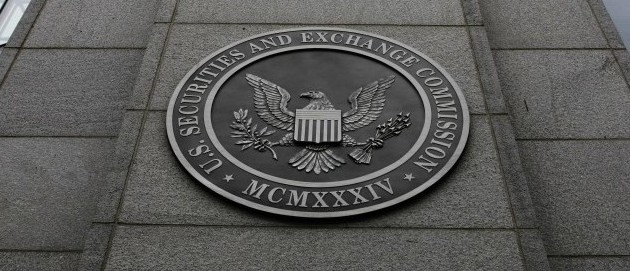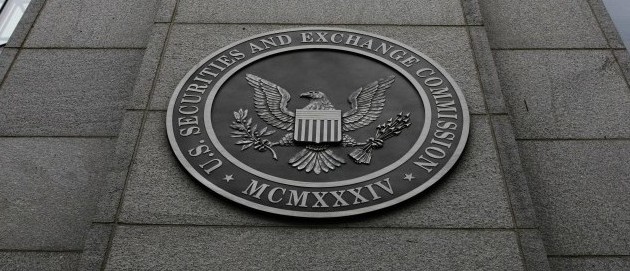Pirates are still piratical. And just reprisals are still a lawful way to bring them to justice.
The SEC and the Cascade of Evasions
 A recent WSJ editorial, The SEC as Prosecutor and Judge, comments on the SEC’s hints that it will be shifting its enforcement of insider trading laws from the courts to administrative adjudications:
A recent WSJ editorial, The SEC as Prosecutor and Judge, comments on the SEC’s hints that it will be shifting its enforcement of insider trading laws from the courts to administrative adjudications:
A year after vowing to take more of its law-enforcement cases to trial, Securities and Exchange Commission officials now say the agency will increasingly bypass courts and juries by prosecuting wrongdoers in hearings before SEC administrative law judges, also known as ALJs. “I think you’ll see that more and more in the future,” SEC Enforcement Director Andrew Ceresney told a June gathering of Washington lawyers, adding that insider trading cases were especially likely to go before administrative judges.
Ceresney undoubtedly thinks this will be efficient — not to mention advantageous in avoiding those pesky critters known as judges and juries.
The SEC has recently suffered some losses at trial, and these have occurred almost entirely in insider trading cases. Is the shift from courts to administrative proceedings a response to these losses?
Ceresney protests that the SEC is not evading the courts. According to a report by BNA, although Ceresney admitted that “more insider trading cases” will be handled by ALJs, he simultaneously “stressed that this is not a reaction to the commission’s recent trial losses.”
Perhaps the SEC is not merely responding to its losses, but the underlying reality is obvious enough. According to Ceresney, one of the factors that will lead the SEC to chose administrative adjudication is “whether the case would play well before a jury.” No kidding.
The SEC clearly hopes to use administrative proceedings to evade the constitutional right to jury. When discussing the recent trial losses suffered by the SEC, Ceresney defended its evasion by talking about the SEC as if it were a victim of unfortunate circumstances in court — circumstances that ordinarily are called juries. He said that insider trading actions are “challenging cases for us.” “Among other problems, the evidence is ‘typically circumstantial’ and the SEC cannot produce ‘victim witnesses’ to sway juries. He also said that juries — perceiving the SEC as similar to criminal authorities — apply a ‘higher standard than the preponderance of the evidence standard’ to commission cases.”
But the juries have a point. The SEC, in reality, is acting as a prosecutor. Notwithstanding the pretense of “civil penalties” — a strange oxymoron — the SEC candidly proclaims on its website that “the SEC is a law enforcement agency.” Indeed, its proceedings are government enforcement actions that seek to punish or correct, and they thus are criminal in nature. No surprise, then, that juries expect more than a civil burden of proof. Rather than a problem, this is a reminder of why juries are valuable.
Whatever the SEC’s Enforcement Director says in defense of moving insider trading cases out of the courts, this policy is an avoidance of the constitutional right to a jury. The Constitution guarantees juries in the trial of all crimes, and the Sixth Amendment beefs this up by guaranteeing a jury in all criminal prosecutions. The Seventh Amendment adds jury rights in “suits at common law” — that is, in civil cases outside of equity and admiralty — where the amount in dispute exceeds $20. These constitutional provisions cover the full range of SEC proceedings to collect damages or penalties, criminal or civil. Nonetheless, the SEC thinks it can rely on statutory authority to escape the Constitution’s jury rights.
Of course, the SEC has long used its administrative proceedings to dodge judges and juries, and as with so many other administrative evasions, the courts have acquiesced. They have whittled away jury rights to the point that juries tend to be available only at the discretion of the enforcing agency. Therefore, even in many profoundly serious cases, Americans can no longer rely on enjoying this right. No wonder that agencies such as the SEC are so confident they can escape the necessity of persuading judges and juries.
Nonetheless, when the SEC responds to its losses in the courts with a further evasion of judges and juries, it reveals the cascading nature of such evasions. Agencies are not known for graciously accepting their failures, and they therefore rarely remain satisfied with their initial run-around of the courts. Thus, although all binding administrative adjudications are evasions of judges and juries, the problem is not stationary. When agencies are dissatisfied with court proceedings, they tend to seek further evasions, until they can largely avoid going to court. By now, as a result, the SEC considers judges and juries merely optional.
And, of course, it is not just a matter of judges and juries. By escaping these lawful adjudicators, the SEC also escapes the full range of procedural niceties that are known as the due process of law. In its place, the SEC offers only administrative process — what in administrative doublespeak is called “all the process that is due.”
This is the brave new world of constitutional rights. The government can choose to evade judges, juries, and almost all procedural rights, thus rendering your rights illusory — while smarmily offering the reassurance that you are getting what process is due. Making it even worse, when the government wants yet further circumvention of your rights, the courts give their blessing.
Of course, you may think this is not so bad for insider traders. But wait until it is applied you in other matters. Having remained silent about the SEC, you will have difficulty protesting when other agencies evade your rights.
The ever widening evasion of constitutional rights is worrisome. Administrative agencies, such as the SEC, enforce important laws, but this is no justification for their evasion of rights — let alone the cascading evasions that threaten to make judges and juries nearly irrelevant. At one point or another, the judges will have to face up to the expanding evasions, and the longer they wait, the more difficult their task will be.



